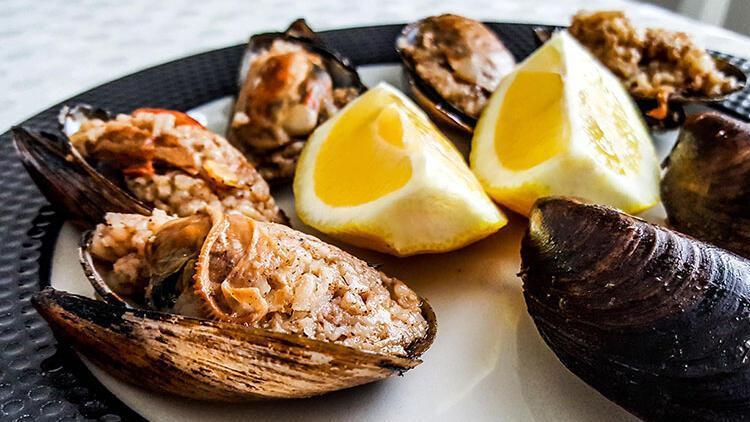
While efforts are ongoing in line with a massive cleanup campaign launched by Turkish authorities to pull the Marmara Sea out of the mucilage calamity, residents are hesitant and concerned about consuming seafood coming from the sea.
As Turkish experts warn against eating mussels and bottom fish due to the pollution that causes marine mucilage, citizens are voicing their questions regarding the consumption of fish and other sea creatures on social media platforms.
Speaking to daily Milliyet, Nuray Erkan, an academic and aquatic sciences expert from Istanbul University, stated that she considered the consumption of mussels and bottom fish as risky due to the pollution that causes mucilage.
Erkan noted that aquaculture products with poor meat yield and nutritional content are expected this season since they cannot find enough nutrients in the environment created by the mucilage.
“Fish such as anchovy, bonito and horse mackerel, which are consumed the most by Turkish people, were in the spawning period in this process. We will see how much mucilage damaged these stocks with the start of the fish season,” she said.
Warning about the consumption of mussels, the academic stated that mussels should be consumed more cautiously due to the current pollution, noting that these creatures feed on whatever they can get in their habitats.
Yeşim Büyükateş, an academic from Çanakkale Onsekiz Mart University, said that there was no harm in consuming migratory fish living in open water but warned about the fishery products obtained in the areas where mucilage was dense.
“It is recommended not to consume raw aquaculture products caught from areas with mucilage problems during this period,” she said.
Over the last two months, Turkey’s Marmara Sea has been swamped by a thick, slimy blanket of sludge called mucilage, that thrives on pollution and warm temperature.
Mucilage is a jelly-like layer of slime that develops on the surface of the water due to the excessive proliferation of microscopic plants called phytoplankton, gravely threatening the marine biome.
Meanwhile, Turkish teams collected nearly 9,400 cubic meters of mucilage from the Marmara Sea over the three weeks, Environment and Urbanization Minister Murat Kurum said.
Kurum also stated that an administrative fine of 15.6 million Turkish Liras was imposed on 125 businesses that failed to comply with the rules on the 23rd day of the inspections in line with the fight against the illegal discharge of wastewater into the Marmara Sea.